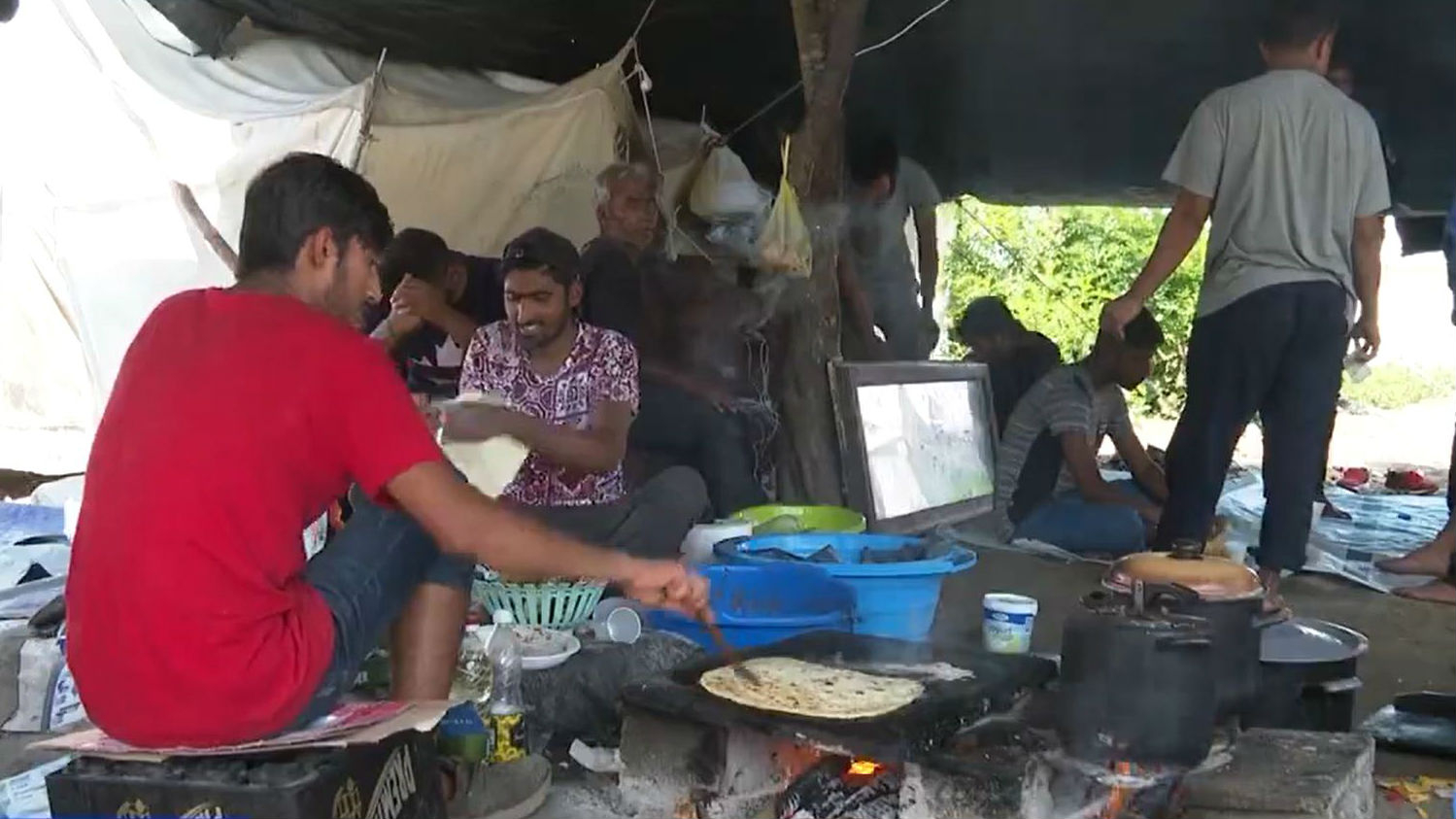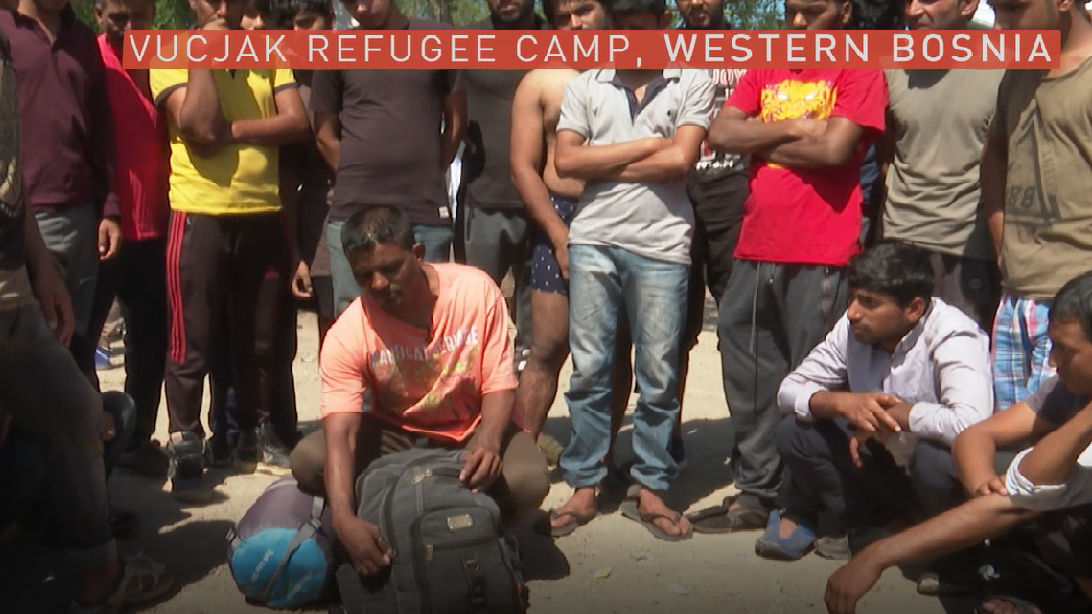04:02

On a summer's evening in Sarajevo, refugees and migrants are sitting outside the central train station. They all want to reach Europe. But first they must reach the border with Croatia.
We meet Ahmed from Pakistan. He tells us he has heard Bosnian police are taking migrants off public buses and trains and making them walk to the border.
The next day, there are dozens of men, mainly from Pakistan, waiting on the platform. The guards step aside and the men rush on to grab a seat.
They have a long journey ahead – it's almost eight hours to the border.
We settle in for the evening. More migrants get on. The Bosnian countryside slips by. And when it becomes dark, people fall asleep.
Then suddenly at 11pm at night, police board the train and order all the migrants off.
The men are confused. Many of them had been asleep. But one by one they get off and sit huddled together on the ground and watch the train depart.
Bosnian police tell us there is no more room in the border town of Bihac. They say it was already full of migrants and these men would have to sleep outside, on the ground, in the middle of a field.
So, they spend the night in the cold with no blankets.
In the morning, Ahmed and his friends walk and then catch a taxi for the last 30 kilometers to Bihac.
This is what's happening on the western Balkan route to Europe.
Officially, this route through Serbia was closed when Hungary decided to block its border to migrants.
01:24

Stronger border
But then a new route emerged through Bosnia and Herzegovina and last year, 21,000 refugees and migrants took it.
The problem is, thousands of them are now stuck in Bosnia. There are between 5,000 and 6,000 migrants in Bihac. Croatia has strengthened its border here and won't let them pass. And if they try, they risk being driven back by Croatian border police.
We meet a Pakistani migrant, Mukasha Hussan, in an unofficial refugee camp nearby. He has tried to cross into Croatia half a dozen times.
"Please solve the issue at the border. We are not criminals we are not terrorists we are just simple men," he says. "We earned the money and we want to change our future."
Hussan accuses Croatian border police of hitting migrants, breaking their phones and burning their food, clothes and backpacks.
The Croatian government denies this and says some refugees and migrants are injured making the difficult journey over the border, but border police have nothing to do with it.
Bosnia and Herzegovina is moving into winter and this mountainous region is bitterly cold at night.
Local officials in Bihac say up to 150 refugees and migrants are still arriving every day.
Now, Bosnian police are rounding up migrants and sending them to an unofficial camp 10 kilometers out of town.
It's at the end of a dirt road, and the conditions are terrible. Hundreds of men are sleeping in tents with no electricity, very few toilets and not enough food and water.
But in some ways, it's perfect if you want to encourage people to leave. The conditions are so bad the men are desperate to get out of Bosnia. The camp is next to mountain paths that head straight up to the border. This is a 20-hour hike and groups of men attempt it every night. Usually three or four of them will share one backpack, full of enough water and food to get them up the mountain.
But most of them fail to make it or are caught and sent back.
Some men told us they've tried to cross 10 times. Others have been on the road traveling for more than two years. They've spent too much time and money to return home now.
So, they plan to stay in Bosnia and keep trying to cross the border again and again.
If they make it to Croatia, they will be inside the European Union. If they then make it to Italy, they will reach the visa-free Schengen area of travel – and from there they can move north to Germany, which is the target for most of them.
It is unlikely the Afghans and Pakistanis will ever be granted asylum in Europe. But that's not stopping men like Ahmed and Hussan from taking their chance. And they'll stop at nothing for a better life in Europe.